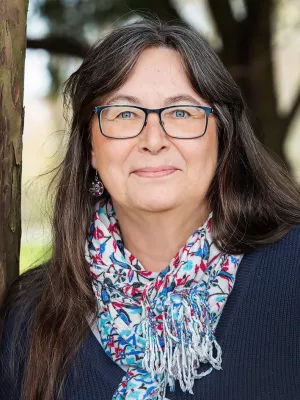
Kerstin Svensson
Professor

Why can't I sit with my friend ? The complexity in diverse anti-discriminatory practices in school.
Author
Summary, in English
In this presentation the focus is on the children's strategies in relation to the actions taken from the school system. I will show some of the children´s refined ways of disregarding the schools organization and instead in a subtle manner move in accordance with their group belongings. Children’s social relations and interactions are in focus in my dissertation where a school class of 23 children at the age of 10 years were observed and interviewed both individually and in focus groups during one school year.
The results from the study indicate that the formation and maintaining of friendship groups recurrently is in tension with how the school formally structure and organize their social behavior. The results from the study are interpreted as the school, in its structure, constrains the children’s ability to express their rights and frame their agency. By this presentation I will show the complexity in empowering the children and at the same time emphasize the children’s rights from their point of view. This not only impact the children’s possibility to plan and structure their everyday life in school but influence the ways in which teachers and school social workers can work with social relations and discrimination in school. In a wider sense it makes the school an arena of different anti-discriminatory practices, where the children and the adults display different strategies. The structures the school has constructed to work against discrimination can as a result become ineffective.
Department/s
- School of Social Work
Publishing year
2016
Language
English
Pages
11-11
Publication/Series
Child-Friendly Environment For Child Wellbeing and Education
Document type
Conference paper
Publisher
UMS Press
Topic
- Social Work
Keywords
- Social Sciences
Conference name
The First International Conference on Child-Friendly Education.
Conference date
2016-05-11 - 2016-05-12
Conference place
Surakarta, Indonesia
Status
Published
ISBN/ISSN/Other
- ISSN: 2503-5185

